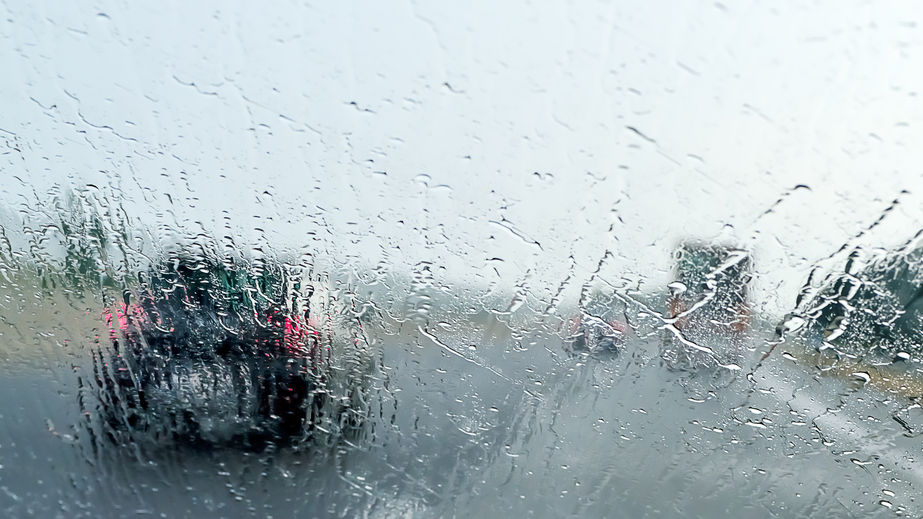Rainy Season? More Rain Equals More Accidents
August 10, 2018 | Category: Automobile Accidents | Share Experts agree that rain is the deadliest weather-driving hazard. The U.S. Department of Transportation (DOT) says that “Weather acts through visibility impairments, precipitation, high winds, and temperature extremes to affect driver capabilities, vehicle performance (i.e., traction, stability and maneuverability), pavement friction, roadway infrastructure, crash risk, traffic flow, and agency productivity.”
Experts agree that rain is the deadliest weather-driving hazard. The U.S. Department of Transportation (DOT) says that “Weather acts through visibility impairments, precipitation, high winds, and temperature extremes to affect driver capabilities, vehicle performance (i.e., traction, stability and maneuverability), pavement friction, roadway infrastructure, crash risk, traffic flow, and agency productivity.”
The Statistics:
Based on NHTSA (National Highway Traffic Safety Administration) data analyzed by Booz Allen Hamilton (10-year averages from 2005 to 2014), the vast majority of weather-related crashes happen on wet pavement (73 percent) and during rainfall (46 percent). On average there are more than 950,000 automobile crashes each year due to wet pavement, resulting in approximately 4,700 deaths and 384,000 injuries.
Driving Tips from AAA (American Automobile Association)
The AAA recommends the following:
Maintenance : Make sure the vehicle is ready before being caught in a storm. Replace windshield wiper inserts that leave streaks or do not clear the glass in a single swipe. Make sure all headlights, taillights, brake lights and turn signals are properly functioning so the vehicle is seen by other drivers. Turn on headlights whenever driving. (Do not use blinking hazard lights when driving in the rain. It is illegal in Florida.) Make sure the tire tread depth and inflation are correct. They are imperative to maintaining good traction on wet roadways. Check the tread depth with a quarter inserted upside down into the tire groove. If Washington’s head can be seen, start shopping for new tires. Check each tire’s pressure, including the spare, at least once a month, and be sure to check the pressure when the tires are cold.
Avoid Cruise Control : The chance of losing control of a vehicle in wet conditions increase with cruise control. To prevent the loss of traction, the driver may need to reduce the vehicle’s speed by lifting off the accelerator, which cannot be accomplished when cruise control is engaged.
Slow Down and Leave Room: To reduce a vehicle’s chance of hydroplaning, slow down during wet weather conditions. With as little as 1/12 inch of water on the road, tires have to displace a gallon of water per second to keep the rubber meeting the road. Drivers should reduce their speed to correspond to the amount of water on the roadway. At speeds as low as 35 mph, new tires can still lose some contact with the roadway. Drivers can reduce the chances of hydroplaning by slowing down, avoiding hard braking or turning sharply and driving in the tracks of the vehicle ahead of them. It’s very important to allow ample stopping distance between vehicles by increasing the following distance of the vehicle in front of them and beginning to slow down to stop for intersections, turns and other traffic early.
Responding to a Skid: Don’t panic. Continue to look and steer in the direction in which you want the vehicle to go. Avoid slamming on the brakes as this will further upset the vehicle’s balance and make it harder to control. If you feel the vehicle begin to skid, continue to look and steer in the direction you want the vehicle to go. Avoid slamming on the brakes.
“Driving in wet weather conditions is a challenge. Should you or a loved one be injured in an accident due to the negligence of another driver, please contact our experience legal team. We are available 24/7 and, there are no costs or attorney fees unless we make a monetary recovery for you,” said Fort Myers Car Accident Attorney, Randall Spivey.
Fort Myers Car Accident Attorney, Cape Coral Accident Attorney, Randall L. Spivey is a Board Certified Trial Attorney – the highest recognition for competence bestowed by the Florida Bar and a distinction earned by just one (1%) percent of Florida attorneys. He has handled over 2,000 personal injury and wrongful death cases throughout Florida. For a free and confidential consultation to discuss your legal rights, contact the Spivey Law Firm, Personal Injury Attorneys, P.A., in Lee County at 239.337.7483 or toll free at 1.888.477.4839,or by email to Randall@SpiveyLaw.com. Visit SpiveyLaw.com for more information. You can contact Spivey Law Firm, Personal Injury Attorneys, P.A.in Charlotte County at 941.764.7748 and in Collier County 239.793.7748.

